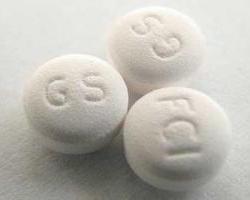In this post we will go over some of the more commonly reported side effects for the prescription drug Paxil when combined with alcohol.
Keep in mind the following: patients are strongly urged NOT to combine this prescription drug with alcohol because of the side effects listed below; that this list of side effects only includes side effects that have been reported to the FDA; and that not all side effects get reported, so all patients are encouraged to report any and all perceived side effects from any medications to their health care professional immediately.
What is it?
Paxil is an anti-depressant that is classified as a so-called selective serotonin reuptake inhibitors (SSRI). It is believed to work by adjusting chemical imbalance in the brain—imbalance it is believed may be leading to one or more of several psychological disorders, ranging from depression, panic, and anxiety, to obsessive-compulsive disorder.
Paxil (paroxetine) is used to treat major depressive disorder, post-traumatic stress disorder (PTSD), obsessive-compulsive disorder, panic disorder, and premenstrual dysphoric disorder (PMDD).
Combining almost any medication with alcohol is regarded by health care professionals as a bad idea because of the ability of alcohol to either increase or decrease the effects of the medication being taken, among other reasons. In the case of Paxil, alcohol can often decrease the effectiveness of Paxil, causing it to be less effective for the reasons it was prescribed to the patient in the first place, thereby creating the possibility that the symptoms it was prescribed to prevent will come back.
Additionally, combining alcohol with Paxil may also increase the side effects of Paxil—side effects that may already be difficult to deal with.
Reported side effects of combining Paxil and alcohol
- Abnormal thoughts
- Vision changes
- Dizziness
- Hallucinations
- Changes in blood pressure
- Boosted sex drive
- Changes in emotion (highs and lows)
- Irregular heart rhythm
- Joint pain
- Nausea or vomiting
- Diarrhea
- Paranoia
- Mania (racing thoughts or excess energy
- Muscle rigidity, poor muscle control, or uncontrolled muscle movements
- Thoughts of suicide or suicidal actions
- Uncontrollable laughing and/or crying
- Weight gain
Some studies have been published that demonstrate a possible relationship between SSRI's like Paxil and an increase in the urge to consume alcohol. While this has not been fully established, the best advice is to try and avoid alcohol consumption for the duration of time one is prescribed Paxil.
Sources: Healthline, National Institutes of Health



